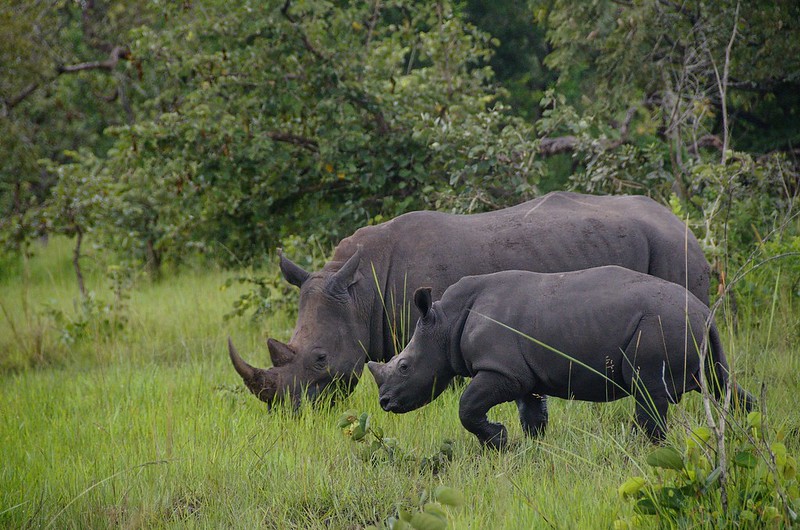Vous êtes bienvenus, aventuriers courageux, dans les merveilles sauvages de l'Ouganda, où l'appel de la…
Are Gorillas Aggressive and Dangerous?
Are Gorillas Aggressive and Dangerous? | Silverback | Friendly | Endangered
Gorillas are not naturally aggressive or dangerous creatures. In fact, they are well-known for their kind and tranquil demeanor. Gorillas are the biggest primates and share a considerable percentage of their DNA with humans. They live in family groups led by a dominant silverback male, with strong ties and cooperative behaviors defining their social structure.
Here are some crucial aspects to consider when it comes to gorilla behavior:
- Peaceful Nature: Gorillas are primarily herbivores, mainly consuming leaves, stems, fruit, and other plant material. They do not have a carnivorous diet and are not naturally inclined to be aggressive predators.
- Social Structure: Gorilla social groups are centered around strong family bonds. The silverback male serves as the protector and leader of the group, ensuring the safety and cohesion of the family. Females and juveniles often live together in these groups.
- Territorial Behavior: While gorillas can exhibit territorial behavior to protect their group’s range, this behavior is usually directed towards other gorilla groups rather than humans. In the wild, human encounters with gorillas are typically managed by trained guides and researchers to minimize stress on the animals.
- Threat Displays: Like many animals, gorillas have a repertoire of behaviors they use to communicate. Some of these behaviors, such as chest-beating and vocalizations, can appear intimidating, but they are generally used to establish dominance within the group or to deter potential threats.
- Human Interaction: Habituated gorilla groups, those that have become accustomed to human presence due to regular visits by researchers or tourists, can be relatively tolerant of human observers at a safe distance. However, even habituated gorillas should be treated with respect and care to minimize stress and potential disturbances to their natural behaviors.
- Rare Aggression: While gorilla aggression towards humans is extremely rare, it can occur if a gorilla feels threatened, cornered, or provoked. Encounters with wild gorillas should be conducted under the guidance of experts to ensure the safety of both humans and gorillas.
It is critical to remember that gorillas in the wild should be treated like wild creatures, with adequate space and compassion. Responsible ecotourism practices, led by specialists and conservation organizations, assist to ensure that human-gorilla encounters are safe, polite and cause as little disruption to the creatures’ normal behaviors as possible.
In conclusion, gorillas are not usually violent or hazardous to people. They are herbivorous, gregarious mammals that play an important role in their ecosystems. While they have the ability to show power and dominance, their general behavior is primarily focused on ensuring social harmony among their communities.


